Filter by
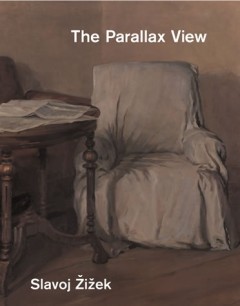
The parallax view
In Žižek's long-awaited magnum opus, he theorizes the "parallax gap" in the ontological, the scientific, and the political—and rehabilitates dialectical materialism. The Parallax View is Slavoj Žižek's most substantial theoretical work to appear in many years; Žižek himself describes it as his magnum opus. Parallax can be defined as the apparent displacement of an object, caused by a c…
- Edition
- -
- ISBN/ISSN
- 9780262286640
- Collation
- 1 online resource (ix, 433 pages).
- Series Title
- -
- Call Number
- -

The Bodhisattva's Brain :Buddhism Naturalized
"A Bradford Book."Can there be a Buddhism without karma, nirvana, and reincarnation that is compatible with the rest of knowledge?OCLC-licensed vendor bibliographic record.
- Edition
- -
- ISBN/ISSN
- 9780262298179
- Collation
- 1 online resource (xiv, 264 pages)
- Series Title
- -
- Call Number
- -
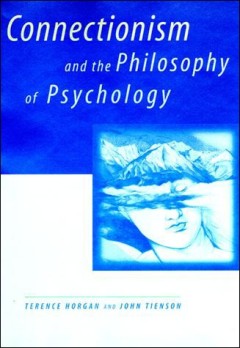
Connectionism and the Philosophy of Psychology
Human cognition is soft. It is too flexible, too rich, and too open-ended to be captured by hard (precise, exceptionless) rules of the sort that can constitute a computer program. In Connectionism and the Philosophy of Psychology, Horgan and Tienson articulate and defend a new view of cognition. In place of the classical paradigm that take the mind to be a computer (or a group of linked compute…
- Edition
- -
- ISBN/ISSN
- 9780262275675
- Collation
- 1 online resource (xiii, 207 pages) :illustrations
- Series Title
- -
- Call Number
- -

Adorno's negative dialectic :philosophy and the possibility of critical ratio…
The purely philosophical concerns of Theodor W. Adorno's negative dialectic would seem to be far removed from the concreteness of critical theory; Adorno's philosophy considers perhaps the most traditional subject of "pure" philosophy, the structure of experience, whereas critical theory examines specific aspects of society. But, as Brian O'Connor demonstrates in this highly original interpreta…
- Edition
- -
- ISBN/ISSN
- 9780262280884
- Collation
- 1 online resource (xviii, 204 pages).
- Series Title
- -
- Call Number
- -
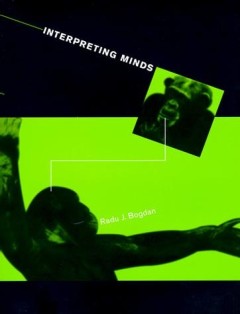
Interpreting minds
Unlike most current researchers in philosophy and psychology, who view interpretation as a way to understand the minds and behavior of others, Radu J. Bogdan sets out to establish a new evolutionary and practical view of interpretation. According to Bogdan, the ability to interpret others' mental states has evolved under communal, political, and epistemic pressures to enable us to cope with the…
- Edition
- -
- ISBN/ISSN
- 0262268892
- Collation
- 1 online resource (318 pages).
- Series Title
- -
- Call Number
- 150 BOG i
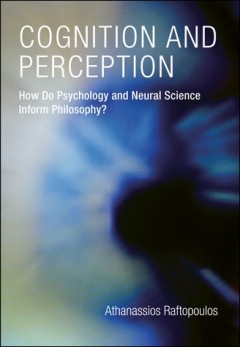
Cognition and perception : How do psychology and neural science inform philos…
An argument that there are perceptual mechanisms that retrieve information in cognitively and conceptually unmediated ways and that this sheds light on various philosophical issues. In Cognition and Perception, Athanassios Raftopoulos discusses the cognitive penetrability of perception and claims that there is a part of visual processes (which he calls “perception”) that results in repre…
- Edition
- -
- ISBN/ISSN
- 9780262259149
- Collation
- 1 online resource (xxiv, 419 pages)
- Series Title
- -
- Call Number
- -

Who's asking? : Native science, Western science, and science education
"The answers to scientific questions depend on who's asking, because the questions asked and the answers sought reflect the cultural values and orientations of the questioner. These values and orientations are most often those of Western science. In Who's Asking?, Douglas Medin and Megan Bang argue that despite the widely held view that science is objective, value-neutral, and acultural, scient…
- Edition
- -
- ISBN/ISSN
- 9780262319430
- Collation
- 1 online resource (xii, 282 pages) :illustrations
- Series Title
- -
- Call Number
- -
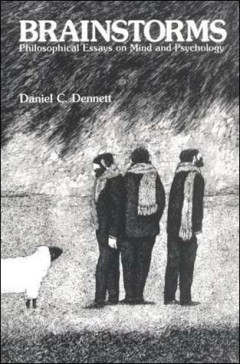
Brainstorms :philosophical essays on mind and psychology
"A Bradford book."This collection of 17 essays by the author offers a comprehensive theory of mind, encompassing traditional issues of consciousness and free will. Using careful arguments and ingenious thought-experiments, the author exposes familiar preconceptions and hobbling institutions.This collection of 17 essays by the author offers a comprehensive theory of mind, encompassing traditiona…
- Edition
- 1st MIT Press edition.
- ISBN/ISSN
- 9780262271509
- Collation
- 1 online resource (xxii, 353 pages)
- Series Title
- -
- Call Number
- -
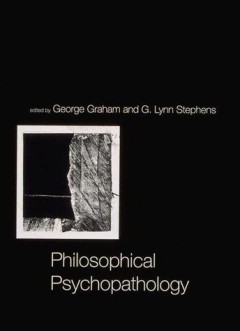
Philosophical psychopathology
"A Bradford book."Philosophical Psychopathology is a benchmark volume for an emerging field where mental disorders serve as the springboard for philosophical insights. It brings together innovative, current research by Owen Flanagan, Robert Gordon, Robert Van Gulick, and others on mental disorders of consciousness, self-consciousness, emotions, personality, and action and belief as well as gene…
- Edition
- -
- ISBN/ISSN
- 9780262274227
- Collation
- 1 online resource (ix, 332 pages)
- Series Title
- -
- Call Number
- -
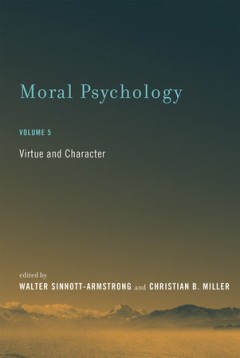
Moral psychology
Groundbreaking essays and commentaries on the ways that recent findings in psychology and neuroscience illuminate virtue and character and related issues in philosophy.Philosophers have discussed virtue and character since Socrates, but many traditional views have been challenged by recent findings in psychology and neuroscience. This fifth volume of Moral Psychology grows out of this new wave …
- Edition
- -
- ISBN/ISSN
- 9780262337281
- Collation
- 1 online resource (4 volumes) :illustrations
- Series Title
- -
- Call Number
- -
 Computer Science, Information & General Works
Computer Science, Information & General Works  Philosophy & Psychology
Philosophy & Psychology  Religion
Religion  Social Sciences
Social Sciences  Language
Language  Pure Science
Pure Science  Applied Sciences
Applied Sciences  Art & Recreation
Art & Recreation  Literature
Literature  History & Geography
History & Geography